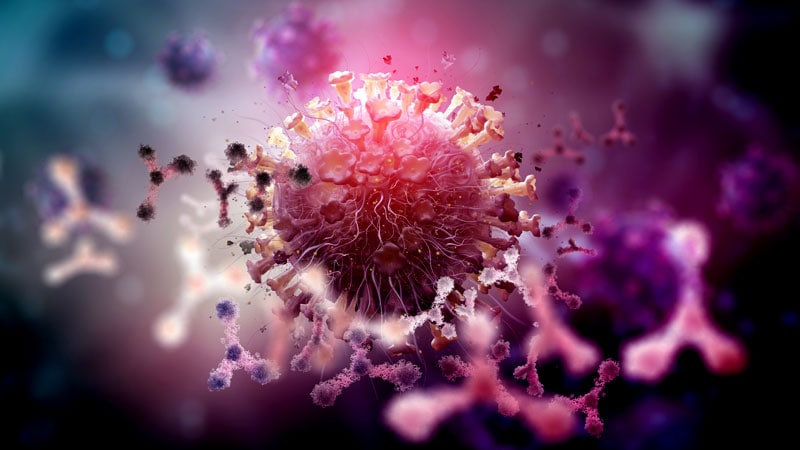Editor’s note: Find the latest COVID-19 news and guidance in Medscape’s Coronavirus Resource Center.
New research helps bolster the argument for getting COVID-19 booster shots now, even though the formulations are not specifically targeted to the latest Omicron and Delta variants, researchers suggest in a paper published today.

Dr Otto Yang
Senior author Otto Yang, MD, professor in the division of infectious diseases and of microbiology, immunology, and molecular genetics at the David Geffen School of Medicine, University of California, Los Angeles, told Medscape Medical News that their findings, published in the peer-reviewed journal mBio, suggest encouraging news regarding the merits of boosters.
The researchers, led by F. Javier Ibarrondo, PhD, also from the David Geffen School of Medicine, compared immune reactions in 15 vaccinated people who had not been infected before with SARS-CoV-2 and 10 people who were infected before vaccination. Most had received the Pfizer or Moderna two-dose mRNA vaccines.
They evaluated how antibodies act against a panel of seven spike variant combinations of five mutations. They studied people shortly after they recovered from a mild case of COVID-19 after experiencing symptoms no later than April 2020. They then compared this group with people never infected who were evaluated shortly after vaccination.
Yang said they found that people who had had COVID and then got vaccinated developed not only more antibodies to the virus but a higher quality of antibodies, more equipped to take on variants.
The antibodies produced by either just getting COVID-19 or by getting vaccinated without having had COVID had difficulty protecting against certain variants, Yang said.
“But when we looked at the combination of the two — so people who had had COVID and who got vaccinated after they’d had COVID — they developed much more efficient antibodies that could deal with all the spike variants that we tested,” he said.
Making B Cells Stronger
Yang explained that boosters were not available at the time of the study, but said it is a small leap to predict that they behave similarly.
“We only show this in the case of COVID plus vaccination,” he said, “but COVID plus vaccination is not that different from vaccinations plus vaccination (booster).”
Yang says it follows a basic concept in antibody research: somatic hypermutation.
“Once the B cells make antibodies, the longer those B cells are exposed to the things they’re making antibodies against the more they continue to modify those antibodies to be better,” he said. “It fits what we expect but it’s perhaps faster than we expected — this improvement of antibodies — so it’s good news.”
Even within the fairly limited scenarios the researchers tested, the B cells can continue to improve, he said.
“It suggests that if we get boosters, the additional exposure from the vaccine will not only increase the amount of antibodies after [they’ve] drifted down, but will also improve the quality of those antibodies,” Yang said.
The authors say in the paper, “Whether this can also be accomplished in SARS-CoV-2-naive persons through vaccination alone, such as delivering supplemental doses beyond the original vaccination regimen of two doses, remains to be determined.”
Yang said a common argument he hears against the boosters is that people are waiting because they think a booster targeted to a specific variant is around the corner.
“What this (study) suggests — is if you get the booster now you will still get some additional benefit against these variants even though the vaccine is not specifically tailored against the variants,” Yang said.
He said that by the time their work was published, other studies, referenced in the paper, had come out showing similar findings.
mBio. Published online December 7, 2021. Full text
The study was funded by the AIDS Healthcare Foundation, the National Institutes of Health through the UCLA AIDS Institute and Center for AIDS Research, the James B. Pendleton Charitable Trust, and the McCarthy Foundation.
The authors report no relevant financial relationships.
Marcia Frellick is a freelance journalist based in Chicago. She has previously written for the Chicago Tribune, Science News, and Nurse.com, and was an editor at the Chicago Sun-Times, the Cincinnati Enquirer, and the St. Cloud (Minnesota) Times. Follow her on Twitter at @mfrellick.
For more news, follow Medscape on Facebook, Twitter, Instagram, YouTube, and LinkedIn.
